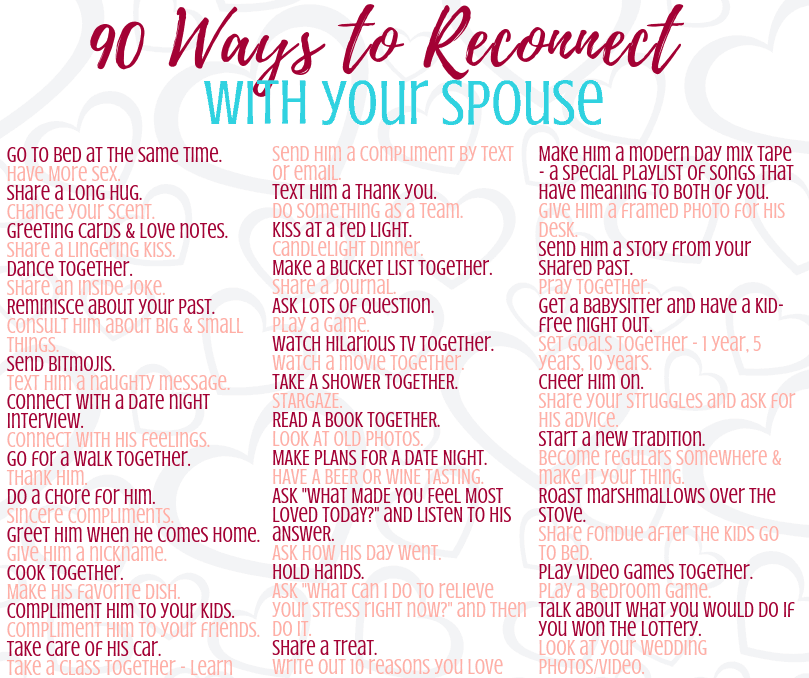How Do You Tell If Your Spouse Has Given Up? Recognizing The Quiet Signs
Detail Author:
- Name : Mr. Amos Stoltenberg
- Username : enos.king
- Email : darion.dare@hotmail.com
- Birthdate : 2007-07-10
- Address : 76095 Benjamin Pass Apt. 028 Hintzfort, OK 26137
- Phone : +19412771383
- Company : O'Connell and Sons
- Job : Zoologists OR Wildlife Biologist
- Bio : Qui sed est molestias nihil quidem odio. Non et sunt alias et quas voluptatem ut. Ut nihil illum voluptate enim.
Socials
facebook:
- url : https://facebook.com/ebert1973
- username : ebert1973
- bio : Omnis debitis eligendi reiciendis est aliquid tempore expedita.
- followers : 3117
- following : 1139
linkedin:
- url : https://linkedin.com/in/carter_dev
- username : carter_dev
- bio : Quam et voluptates modi illum.
- followers : 2533
- following : 1662
twitter:
- url : https://twitter.com/ebertc
- username : ebertc
- bio : Dolores qui nobis mollitia et. Eum deleniti aut iste non sunt. Magnam cum voluptatem eum molestiae rerum quia. Doloremque quas dolores doloremque.
- followers : 4842
- following : 2777
tiktok:
- url : https://tiktok.com/@carter_dev
- username : carter_dev
- bio : Laboriosam ut sed vel reprehenderit optio rerum.
- followers : 5509
- following : 652
instagram:
- url : https://instagram.com/ebert2014
- username : ebert2014
- bio : A sit cum cumque sit nostrum et. Qui at eos tenetur qui.
- followers : 3488
- following : 2459
It can feel incredibly heavy, this feeling that something has shifted in your most important relationship. You might find yourself watching your partner, perhaps when they think you aren't looking, and a quiet worry starts to settle in your chest. Is that a hint of distance you're sensing? Are they pulling away, or is it just your imagination running wild? This is a very common concern for many people, especially as relationships go through different stages and face various pressures.
That feeling of unease, that quiet question in your mind, can be quite unsettling, you know? It's natural to wonder if the person you share your life with still feels connected, still feels invested in the shared journey you've been on. You might notice little changes in daily routines or how conversations play out, and these small things can sometimes add up to a bigger picture that feels a bit unsettling, or even sad.
Today, on this rather ordinary day in late May 2024, we're going to talk about how to spot those subtle hints that your spouse might be feeling disconnected or, in a way, has started to let go of the bond you share. We will look at common actions, or the lack of them, that can signal a shift. Just as "My text" explains how the word "do" can mean to perform an act or duty, or even how different medical professionals "do" their work, in a relationship, what your spouse "does" or *doesn't do* can speak volumes about their feelings and involvement, you see.
Table of Contents
- Understanding the Shift: What Giving Up Really Looks Like
- Subtle Signs of Emotional Distance
- Changes in Communication Patterns
- A Shift in Priorities
- What to Do When You Notice the Signs
- Moving Forward
Understanding the Shift: What Giving Up Really Looks Like
When we talk about a spouse "giving up," it's not always a dramatic, sudden event, you know? More often than not, it's a gradual process, a slow fading of connection and effort. It's less about a single decision and more about a series of small withdrawals, almost like a quiet retreat from the shared space of the relationship. This can be really hard to spot at first, because life gets busy and people change a little bit over time anyway.
It's important to remember that "giving up" doesn't always mean they want to leave, either. Sometimes, it means they've simply stopped putting in the energy to keep things vibrant, perhaps feeling overwhelmed or hopeless about certain issues. They might still be physically present, but emotionally, they've checked out, so it's a bit like they're there but not really *there* with you.
Recognizing these subtle shifts is really the first step. It's about paying attention to patterns rather than isolated incidents. A single bad mood or a quiet evening doesn't mean much on its own, but a consistent pattern of disengagement, well, that could be telling, couldn't it?
Subtle Signs of Emotional Distance
Emotional distance can show up in many small ways. These aren't always glaring red flags, but rather quiet indicators that something might be changing in your spouse's feelings or their level of commitment to the relationship. You might find yourself noticing these things and wondering if you're just overthinking, but sometimes your gut feeling is pretty accurate.
Less Engagement in Daily Life
One common sign is a noticeable decrease in their involvement with the everyday happenings of your shared life. This isn't just about chores, you know? It's more about their general presence and interest. Do they still ask about your day with genuine curiosity, or do their responses feel a bit rote, almost like they're just going through the motions? A spouse who is giving up might stop asking about your work, your friends, or even your plans for the weekend. They might seem less interested in sharing their own experiences too, which is a bit of a concern.
They might be physically in the same room, but their attention feels elsewhere, maybe on their phone or just generally disconnected from what's happening around them. It's almost as if they're living parallel lives under the same roof. This lack of active participation in the mundane but meaningful parts of daily life can be a quiet signal of disengagement, truly.
Reduced Physical Affection
Physical touch, even small gestures, often speaks volumes in a relationship. Think about the little things: a hand on your arm, a spontaneous hug, a kiss goodbye, or simply sitting close on the couch. If these gestures become less frequent or stop altogether, it can be a significant indicator. It's not just about intimacy in the bedroom, but the everyday comfort and closeness that physical affection brings. Perhaps they used to reach for your hand without thinking, but now they rarely do, you know?
A spouse who is giving up might shy away from touch, or their touch might feel distant and perfunctory rather than warm and loving. This can be a really painful thing to notice, because physical closeness is often a big part of feeling connected. It's almost like a quiet withdrawal of warmth, in a way.
Avoiding Conflict or Discussion
While arguments are rarely fun, a complete avoidance of conflict can sometimes be more worrying than the arguments themselves. If your spouse no longer seems to care enough to even argue or discuss issues, it might mean they've stopped investing in solving problems. It's almost as if they've decided it's not worth the effort, so they just let things go, or simply agree without really engaging. This can feel very frustrating, naturally.
They might shut down conversations, change the subject, or simply say "whatever" when you try to bring up something important. This isn't about healthy disagreement; it's about a lack of willingness to engage in the give-and-take that helps a relationship grow. It's a quiet sign that they might have given up on finding solutions together, you see.
Changes in Communication Patterns
Communication is the lifeblood of any relationship, and significant shifts here are often clear indicators of deeper issues. How you talk, or don't talk, to each other can reveal a lot about the state of your bond. These changes can be quite subtle at first, but they tend to become more noticeable over time, honestly.
Superficial Conversations
Do your conversations feel less deep and meaningful these days? If your talks mostly revolve around practical matters like bills, kids' schedules, or what's for dinner, and rarely venture into feelings, dreams, or shared experiences, that's a sign. A spouse who is pulling back might avoid talking about anything that requires emotional vulnerability or real thought, you know? It's almost like they're keeping you at arm's length, emotionally speaking.
They might give short answers, avoid eye contact during deeper discussions, or just generally seem uninterested in sharing their inner world. This shift from heartfelt chats to purely functional exchanges can signal a lack of desire to connect on a deeper level. It's a bit like they're building a wall, brick by brick, between you two, in a way.
Lack of Future Talk
Couples who are invested in their shared future often talk about it: planning trips, discussing long-term goals, or even just dreaming about retirement together. If your spouse stops making plans or discussing anything beyond the immediate future, it could be a sign they don't see a long-term future with you, or at least, they're not excited about it. This can be a very chilling realization, as a matter of fact.
They might dismiss your suggestions for future activities or seem uninterested in conversations about where you'll be in five or ten years. This absence of shared vision can indicate a quiet disengagement from the partnership itself. It's almost as if they've stopped seeing you as part of their personal long-range plans, you know?
Increased Criticism or Indifference
Sometimes, a spouse who has given up might become overly critical, finding fault with almost everything you do. This isn't constructive feedback; it's often a way to create distance or justify their own feelings of unhappiness. They might nitpick at small things, or their tone might become consistently negative. It can feel quite hurtful, naturally.
On the other hand, some might show complete indifference. They stop caring about your feelings, your successes, or your struggles. They might react to your news, good or bad, with a shrug or a blank stare. This indifference can be even more painful than criticism, because it suggests a total lack of emotional investment. It's almost like you don't even register on their emotional radar anymore, you know?
A Shift in Priorities
When a spouse begins to disengage, their priorities often shift away from the relationship and towards other areas of their life. This isn't always malicious; sometimes it's a coping mechanism, but it still has a real impact on the partnership. You might notice them putting energy into things that once took a backseat, while your shared life seems to get less attention, so it's a bit of a change.
More Time Spent Away
If your spouse starts spending an unusual amount of time away from home, or prefers to be with friends, family, or even alone rather than with you, it's a significant sign. This isn't about healthy independence; it's about a consistent preference for being elsewhere. They might pick up new hobbies that take them out of the house frequently, or simply stay out later without much explanation. This can feel very lonely, you know?
They might also seem happier and more engaged when they are away from you, only to become quiet or withdrawn when they return. This pattern of seeking solace or enjoyment outside the relationship can indicate that they no longer find happiness or fulfillment within it. It's almost as if they're trying to find ways to escape, in a way.
Disinterest in Shared Activities
Think about the activities you used to enjoy together: movie nights, walks, cooking, or even just quiet evenings at home. If your spouse shows a consistent lack of interest in these shared moments, or always seems to have an excuse not to participate, it's a telling sign. They might prefer to do things alone, or with others, rather than engaging with you. This can make you feel quite isolated, naturally.
They might seem bored or resentful during activities you do manage to do together, or they might simply suggest you do things on your own. This isn't just about different interests; it's about a lack of desire to build new memories or enjoy existing ones with you. It's almost like they've stopped wanting to share their free time with you, you know?
No Effort to Resolve Issues
When problems come up, a healthy relationship involves both partners putting in effort to talk things through and find solutions. If your spouse completely withdraws from problem-solving, or acts as if issues don't exist, it can mean they've given up on trying to fix things. They might refuse to discuss difficulties, or they might just say "fine" without any real intention of changing anything. This can be very disheartening, truly.
They might seem resigned to the problems, or they might even blame you for everything without taking any responsibility themselves. This lack of willingness to work on the relationship, to "do" the work of partnership, as our text mentions performing an act or duty, is a very strong signal that they might have emotionally checked out. It's almost like they've thrown their hands up, in a way.
What to Do When You Notice the Signs
Noticing these signs can be incredibly painful, but it's also an opportunity to take action. The first step is to acknowledge what you're seeing and feeling, you know? Don't dismiss your own observations or feelings, as they are very valid.
Consider having an open and honest conversation with your spouse. Choose a calm moment, perhaps when you both have time and aren't stressed. Express your feelings using "I" statements, focusing on your observations rather than making accusations. For example, say "I've been feeling a bit distant lately" instead of "You've been pulling away." This approach can make it easier for them to hear what you're saying, you see.
Be prepared for their reaction, which could range from denial to anger or even relief. The goal is to open a dialogue, not to solve everything in one conversation. Sometimes, just bringing it up can be a big step towards understanding what's truly going on. It's almost like shining a light on something that's been hidden, in a way.
If communication is difficult, or if you feel stuck, consider seeking professional help. A relationship counselor can provide a neutral space for both of you to express yourselves and work through issues. They can also teach you new ways to communicate and connect. Learn more about relationship dynamics on our site, and perhaps link to this page our relationship resources page for more support. It's almost like having a guide for a difficult path, you know?
People Also Ask
What are the signs a marriage is over?
A marriage might be nearing its end if there's a consistent lack of communication, very little emotional or physical closeness, frequent criticism or indifference, and a general disinterest in working on problems together. When one or both partners stop trying to connect or resolve issues, it's a strong indicator, you see.
How do you know if your partner has checked out?
If your partner seems emotionally absent, avoids spending time with you, shows little interest in your life or shared activities, and doesn't engage in meaningful conversations, they might have checked out. A general lack of effort and a preference for being elsewhere are also common signs, naturally.
Can a relationship be saved after one person gives up?
Yes, sometimes a relationship can be saved, but it requires both partners to be willing to put in the work. It often starts with open communication, understanding the reasons for the disengagement, and a renewed commitment to addressing underlying issues. Professional guidance can often be very helpful in these situations, you know?
Moving Forward
Recognizing the signs that your spouse might be giving up is a tough realization, but it's a necessary one for moving forward. Whether you decide to try and reignite the spark, or accept that the relationship has run its course, knowing where things stand allows you to make informed choices. It's about taking stock of the situation, truly.
Remember, you are not alone in feeling this way, and many people face similar challenges in their relationships. The important thing is to approach the situation with honesty and a willingness to understand, both your own feelings and your spouse's. Sometimes, this process can lead to a deeper connection, or it might lead to a different path for both of you. You might find it helpful to read more about relationship communication here: Gottman Institute. It's almost like finding your way through a thick fog, in a way.
Whatever the outcome, taking action based on these quiet signs is a step towards a healthier future for everyone involved. It's about being brave enough to look at what's happening and decide what comes next, you know? This journey, while challenging, can lead to greater clarity and peace of mind, so it's a bit of a necessary step.


